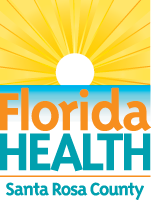It's a New Day in Public Health.
The Florida Department of Health works to protect, promote, and improve the health of all people in Florida through integrated state, county, and community efforts.
SANTA ROSA COUNTY YOUTH KICK BUTTS TOWARDS A TOBACCO FREE FUTURE
March 09, 2017
Milton, Fla. –Santa Rosa County’s Students Working Against Tobacco (SWAT) are speaking up and taking action against the tobacco industry for the 22nd annual Kick Butts Day on March 11, 2017. This national day of activism, sponsored by the Campaign for Tobacco-Free Kids, empowers youth to fight back against Big Tobacco.
SWAT’s theme this year is “Exposing Big Tobacco: You Can’t Make This Up.” The student-led organization’s goal is to expose the deceptive marketing practices the tobacco industry uses to draw in young people. The initiative also raises awareness about the serious harm caused by addictive tobacco products.
SWAT members from six Santa Rosa County schools (Avalon Middle, Hobbs Middle, Holley-Navarre Middle, Milton High, Pace High, Navarre High) will be joining together for a Kick Ball for Kick Butts Day event. They will highlight the importance of Tobacco-Free Parks and Recreational programs, how Big Tobacco targets youth as “replacement smokers”, and the dangerous effects of second-hand smoke.
“As SWAT County Historian, my favorite outreach event is Kick Butts Day, because we get to spread our message within our communities,” said Julia Conover, a County Executive Officer of Students Working Against Tobacco. “This event allows us to educate and engage our communities on the dangerous effects of tobacco.”
Every day, about 1,300 people in the United States die because of smoking.[i] If current smoking rates continue, 270,000 Florida children who are currently younger than 18 years of age will eventually die prematurely as a result of smoking.[ii]
Youth and young adults rarely consider the long-term health consequences of smoking when they start. Because of nicotine, a highly addictive drug, three out of four youth smokers continue smoking well into adulthood, often with severe and even deadly consequences.[iii] In fact, about half of long-term smokers die prematurely from smoking-related causes.[iv]
SWAT aims to empower, educate and equip Florida youth to revolt against Big Tobacco. SWAT is a movement of youth working together to de-glamorize tobacco use. Their efforts aim to shape tobacco-free norms, make tobacco less desirable, less acceptable and less accessible.
About the Florida Department of Health
The department, nationally accredited by the Public Health Accreditation Board, works to protect, promote and improve the health of all people in Florida through integrated state, county and community efforts.
Follow us on Twitter at @HealthyFla and on Facebook. For more information about the Florida Department of Health please visit www.FloridaHealth.gov.
About Tobacco Free Florida
The department’s Tobacco Free Florida campaign is a statewide cessation and prevention campaign funded by Florida’s tobacco settlement fund. Since the program began in 2007, more than 159,000 Floridians have successfully quit using one of Tobacco Free Florida's free tools and services. There are now approximately 451,000 fewer adult smokers in Florida than there was 10 years ago, and the state has saved $17.7 billion in health care costs. To learn more about Tobacco Free Florida’s Quit Your Way services, visit www.tobaccofreeflorida.com or follow the campaign on Facebook at www.facebook.com/TobaccoFreeFlorida or on Twitter at www.twitter.com/tobaccofreefla.
[i] U.S. Department of Health and Human Services. The Health Consequences of Smoking —50 Years of Progress: A Report of the Surgeon General. Atlanta, GA: U.S. Department of Health and Human Services, Centers for Disease Control and Prevention, National Center for Chronic Disease Prevention and Health Promotion, Office on Smoking and Health, 2014
[ii] State estimates of smoking-attributable deaths: CDC, Best Practices for Comprehensive Tobacco Control Programs, 2014.
[iii] U.S. Department of Health and Human Services. Preventing Tobacco Use Among Youth and Young Adults: A Report of the Surgeon General. Atlanta, GA: U.S. Department of Health and Human Services, Centers for Disease Control and Prevention, National Center for Chronic Disease Prevention and Health Promotion, Office on Smoking and Health, 2012.
[iv] U.S. Department of Health and Human Services. Preventing Tobacco Use Among Youth and Young Adults: A Report of the Surgeon General. Atlanta, GA: U.S. Department of Health and Human Services, Centers for Disease Control and Prevention, National Center for Chronic Disease Prevention and Health Promotion, Office on Smoking and Health, 2012.





Connect with DOH